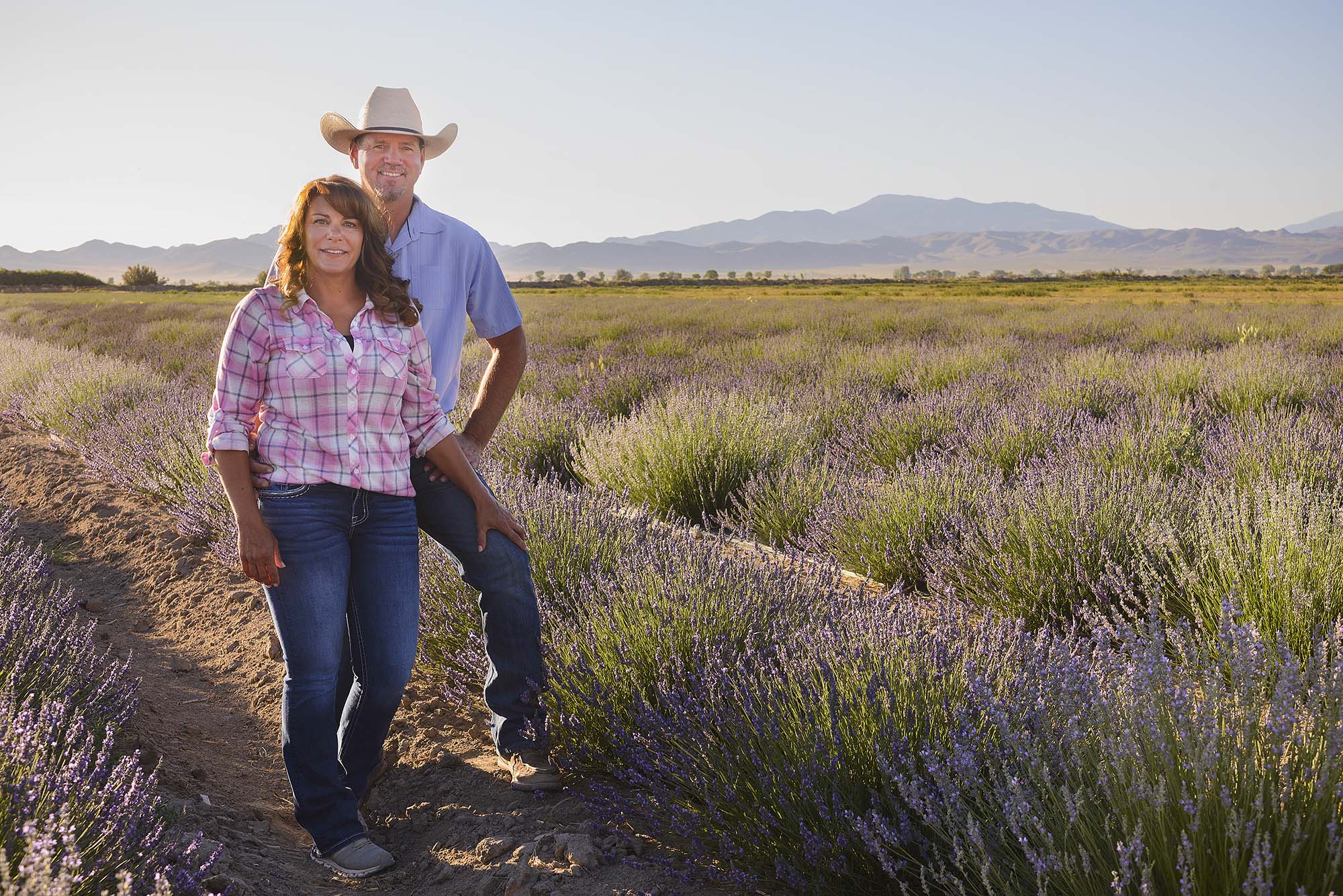Lavender farms take root in Yerington.
Yerington may be known as the Onion Capital of the West, but over the last few years, there’s been a new — and better-smelling — crop blooming in the small town.
The year 2020 welcomed two lavender farms to the semi-arid desert landscape: Deeply Rooted Farms and Lux Lavender. Originating from the Mediterranean, the Middle East, North Africa, and India, lavender thrives in dry, rocky soil with low humidity. Today, there are more than 45 different species with more than 450 varieties that are coveted for their culinary, medicinal, and landscaping potential.
“Lavender is a good desert plant. It’s drought tolerant. In low water years, the plant may not produce great, but it would survive,” explains Sam Allison, co-owner of Lux Lavender. “It’s a perennial, so you don’t have to plant it every year. The plant itself will last and produce for up to 20 years.”
Allison, a fourth-generation farmer/rancher and registered nurse, runs this 10-acre lavender farm alongside her husband, Erik, and best friend, Amanda Vincent.
“We met in kindergarten. We’ve been best friends since we were five,” Allison says. “When we were looking to diversify, we researched the most profitable crops, and lavender was on the list.”
As two former medical professionals, Allison and Vincent were initially drawn to lavender’s healing properties. Research has confirmed that lavender produces calming effects when its scent is inhaled, and other studies show that it may be beneficial to certain conditions, including insomnia, alopecia, and anxiety. Herbalists also treat some skin, joint, and muscle ailments with lavender oil.
Budding Herbalists
“Lavender is a beautiful herb that was really the gateway herb that brought me into herbalism,” says Taylor Thomas, founder of Deeply Rooted Farms. Thomas, a fifth-generation farmer, grew up watching her grandfather, David Peri, grow onions at Peri & Sons Farms in Yerington.
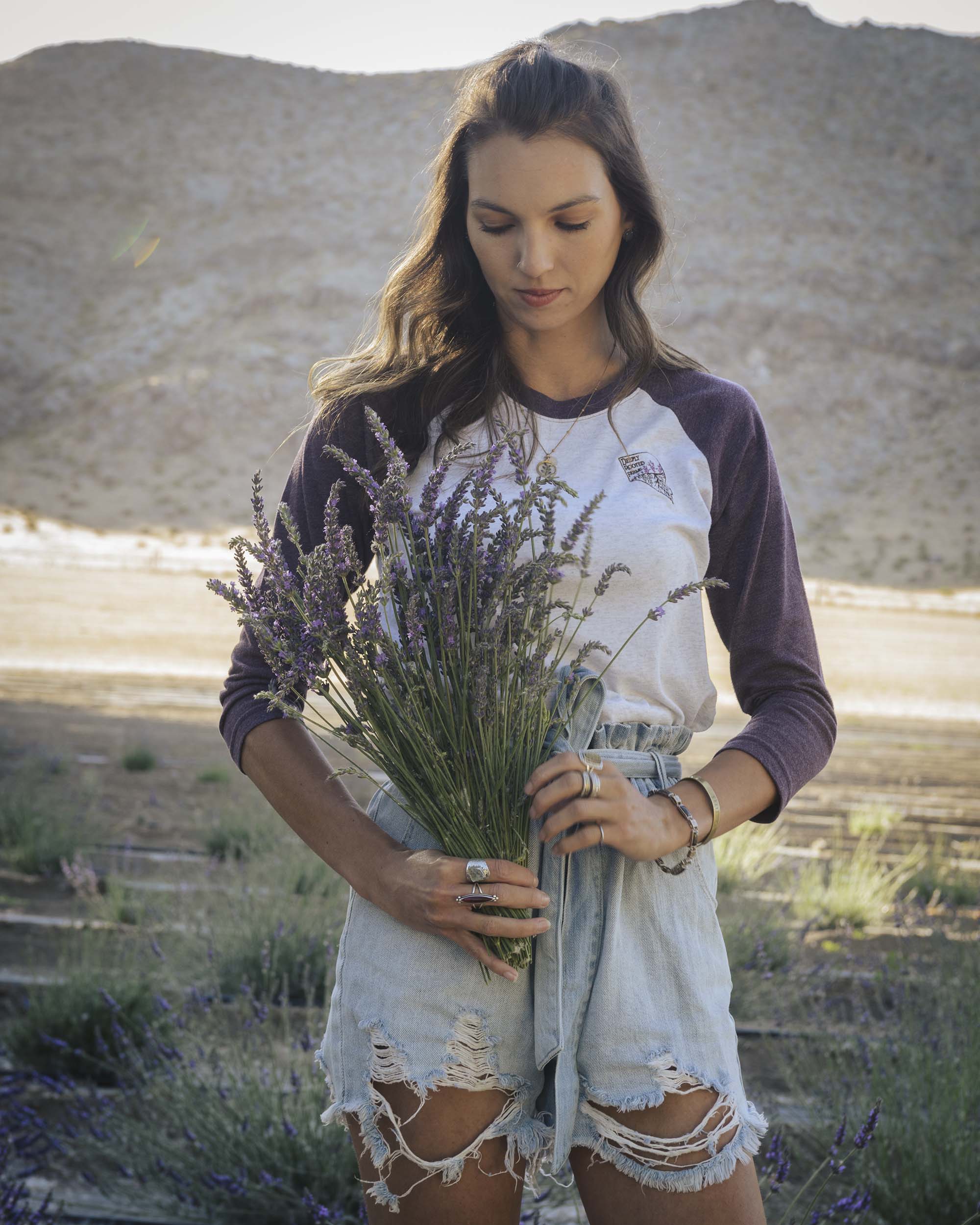
After a brief stint in Southern California and a few years of selling onions to retailers around the world through the family farm, Thomas returned to The Silver State with the goal of starting her own farm. After years of research and saving, she established Deeply Rooted Farms in Yerington.
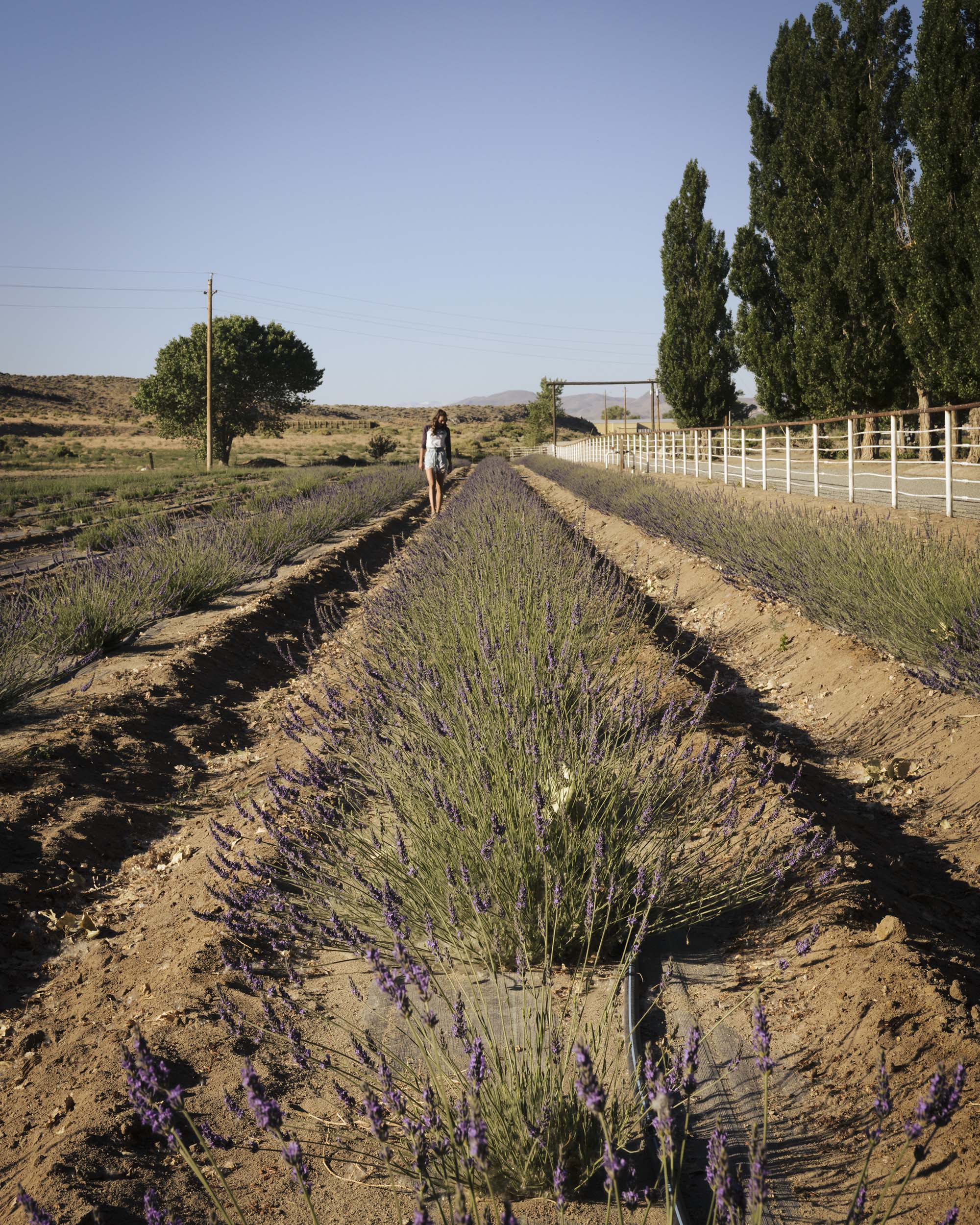
Thomas has three acres of lavender, where she grows a mix of varieties to harvest for culinary purposes — baking and savory — and for drying and distilling into oil.
“I will have blooms from late June all the way till late September. I harvest in June, July, August, and September, depending on what I’m going for,” Thomas explains. “The day of distilling is one of my favorite days. I’m in the field by five in the morning, and I harvest as much as I can. I get a big pile of bulk lavender, and I have a large stainless-steel distiller. I get hydrosol and essential oil out of it.”
Thomas sells dried lavender in sachets, eye pillows, and bath salts and uses the essential oil to create a CBD cream in conjunction with Sierra Nevada Hemp Co. as well as a tallow balm for skin care.
“Tallow is the original body butter,” she says. “I render down local Nevada beef fat to remove all of the impurities and add in olive oil and lavender essential oil. My skin has never looked better since I started using this.”
This season, Thomas planted her first crop of rosemary — the beginning of her foray into growing other herbs at Deeply Rooted.
At Lux Lavender, Allison and Vincent create body scrubs, essential oils, lip balms, lotions, candles, and sprays. On the culinary side, they make hot chocolate mix and lavender salt and sugar. Twenty beehives from Hall’s Honey on their property help produce lavender honey. The partners also worked with local spicemaker JessieGirl Grub to produce lavender rosemary and lavender lemon pepper blends.
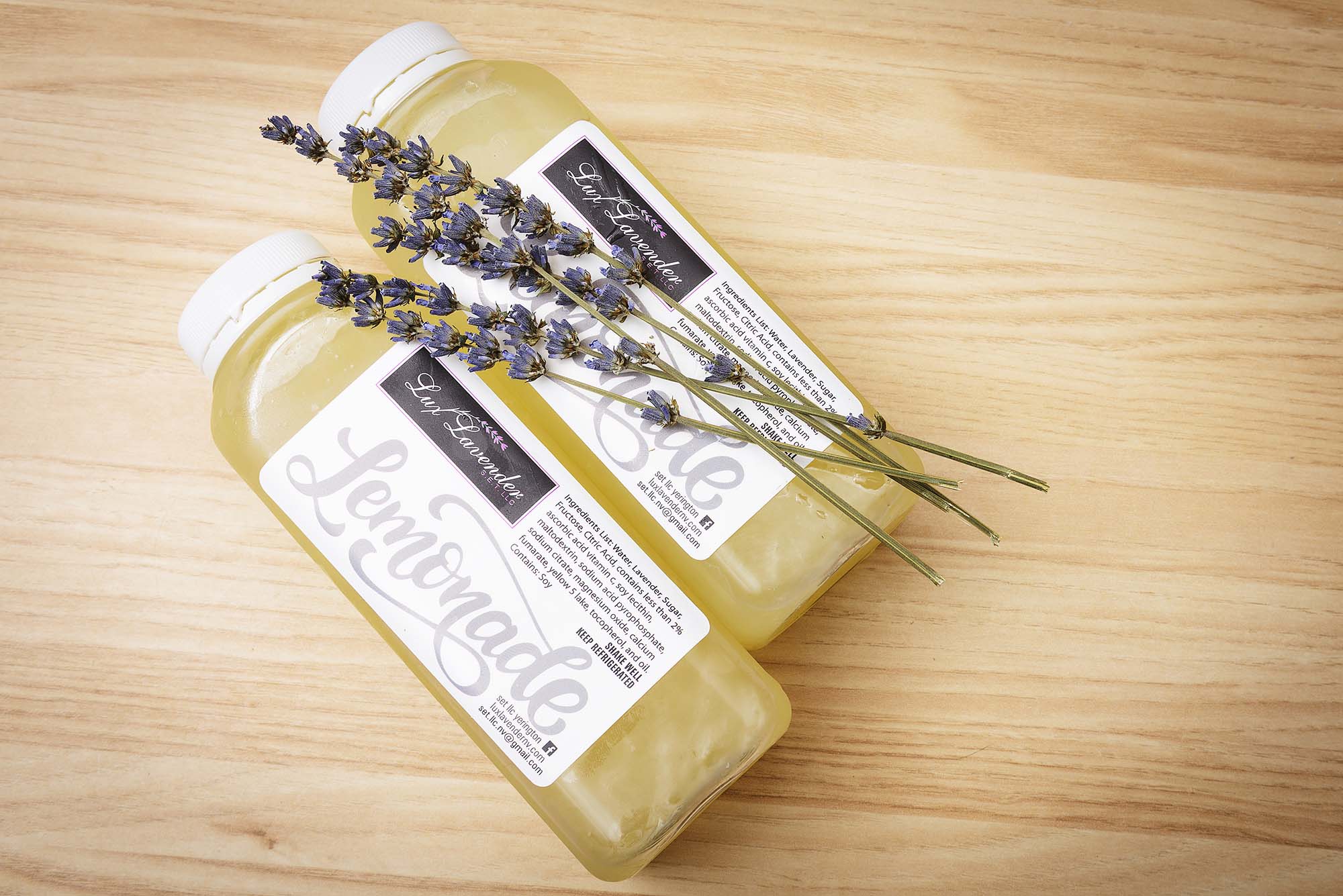
Love Local Lavender
“We make everything by hand and on the premises. Nothing leaves the farm until it comes to you,” Allison notes. “It’s a lot of work. People think we have downtime in the winter, but we don’t because we actually grow thousands of plants. We have 25,000 plants in the greenhouse and sell them. We’ve helped a lot of farmers.”
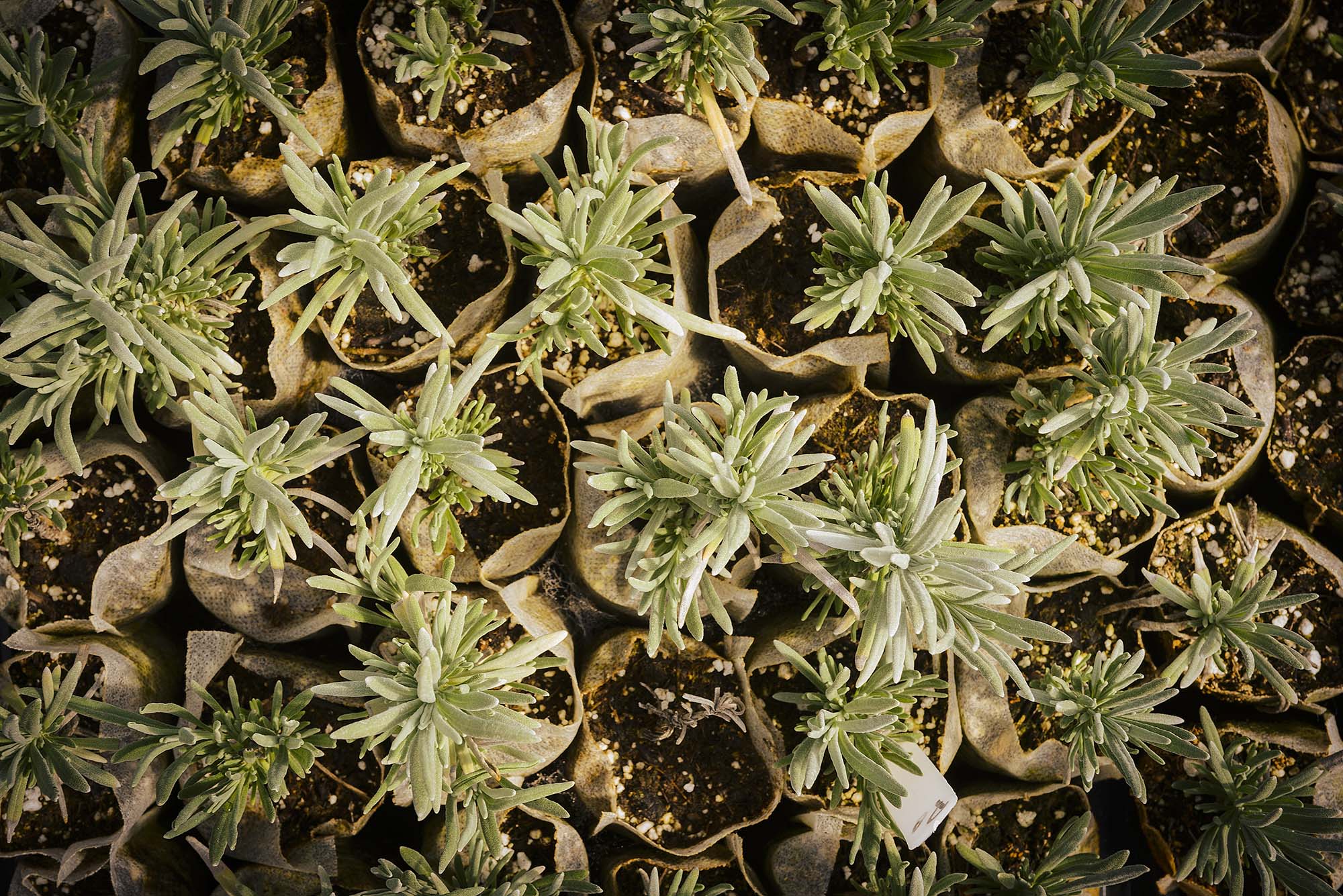
Lux grows 18 varieties of lavender on the farm. Allison loves the white-blooming edelweiss. The royal velvet variety is best for baking, while Provence is ideal for savory cooking, and Twickel purple remains a beautiful, deep violet when dried.
“Buying from a local lavender farmer is really the only way to go. You don’t want to buy from the Home Depot or Lowe’s or Walmart because those plants come straight from a greenhouse, and they might look good on the shelf, but when they get home they won’t survive,” Allison explains.
“Spanish lavender won’t grow here,” Thomas says of the common variety sold at big-box stores. “Buy from a local nursery.”
RESOURCES
Discover Lux Lavender’s products at Luxlavendernv.com and Deeply Rooted Farms’ goods at Deeplyrootedlavender.com.
LAVENDER-GROWING TIPS
Water wisely: “Don’t overwater [plants] but have a consistent watering plan that will get the roots established,” Thomas says. “Make sure the water drains. Lavender roots do not like to be in sitting water. That will actually kill them; it’s the death kiss.”
Stay neutral: “Don’t fertilize lavender,” Allison notes. “It likes a neutral pH in soil or close to it.”
Choose carefully: The lavender varieties that grow well in Reno might not necessarily thrive in South Lake Tahoe. Talk to your local farmer or nursery operator to make sure you’re selecting the proper plants for your zone.
